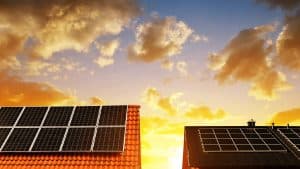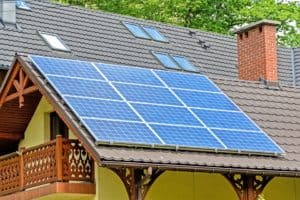
Thinking of installing solar panels? Here’s three things you need to know
If you’re looking to reduce your carbon footprint, you may have considered the practicality of producing your own sustainable energy at home. Generally speaking, solar power is the most accessible green energy source for residential use, which is why its popularity has soared in recent years.
But solar isn’t suitable for all homes, and there are some things you’ll need to consider before making the investment. Here, we explore three of the most important factors to keep in mind.
Location is key
One of the most important factors to keep in mind is the location of your home. Firstly, think more broadly about the geographic situation of your property. In regions that see a lot of direct sunlight throughout the year, solar panels will be able to produce energy more efficiently and will therefore be able to power your home more effectively.
That’s not to say that regions with a lot of cloud cover or overcast conditions aren’t suitable for solar panels; it just means it will take longer for the photovoltaic cells to produce the same amount of energy.
In addition, you should think about the orientation of your home. With all else being equal, south-facing roofs are most conducive to solar power generation (for homes in the northern hemisphere), since the panels will receive the most direct sunlight when facing this direction.
If your home isn’t south-facing, you may need to tweak your solar panel set up to ensure you can still get enough energy for your needs. This is something that you can discuss with your installer during the pre-installation survey.
Solar panels can power your entire home
 A common question people ask about residential solar panels is whether or not they have the capacity to power entire homes. The short answer is yes, this green energy source has the potential to supply your property with all the requisite energy to sustain your daily usage. However, there are certain factors that will affect whether or not this is true for your home.
A common question people ask about residential solar panels is whether or not they have the capacity to power entire homes. The short answer is yes, this green energy source has the potential to supply your property with all the requisite energy to sustain your daily usage. However, there are certain factors that will affect whether or not this is true for your home.
The first consideration is the size and consumption level of your home. The bigger the property and the more energy that’s used within it, the more panels you’ll need in order to generate enough energy.
In addition, there are several things you can do to supplement your solar panel system and help them to go further. For instance, by reducing your overall energy consumption and adopting recommended energy-saving measures, your home will need less electricity and less strain will be placed on your panels.
Plus, you may find it helpful to install a battery alongside your panels, which can be used to store energy for use outside of daylight hours. Otherwise, the benefit of your solar panels will be limited to daylight hours.
Solar panels aren’t cheap
It will come as no surprise to learn that installing a residential solar panel system isn’t a cheap investment. In America, estimates suggest that average homeowners can expect to pay around $16,000 for a solar system, but this figure can surpass $30,000 in certain circumstances.
Of course, you will be able to start saving money on your energy bills as soon as the system has been installed, meaning you will eventually see a positive financial return on your investment.
But if you’re planning to move home in the near future or think your living situation may change, it’s probably wise to hold off investing in solar since you won’t be able to benefit from the financial advantages they can offer in the long term.
Ready for a solar-powered future?
These are just some of the many things to keep in mind when weighing up whether or not an investment in solar is right for you. Be sure to speak to a professional installer before making any financial commitments, to ensure your home is suitable and you’ll be able to get the most from your system.